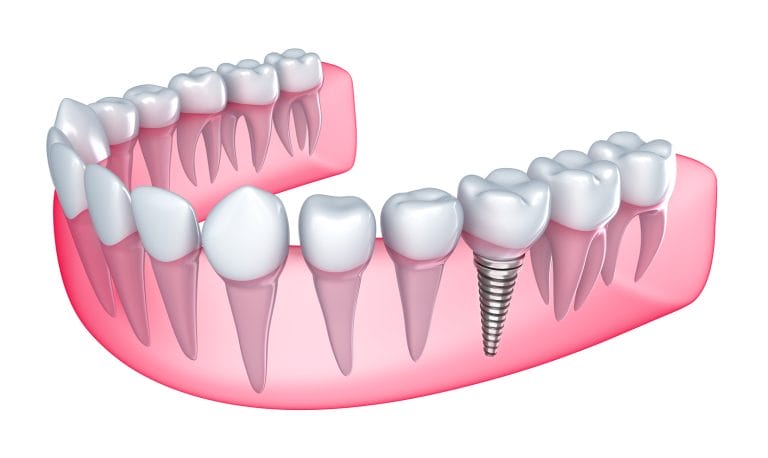Let’s face it, most people groan when they have to visit their dentist, but there comes a time in everyone’s life when it becomes inevitable. You know how it goes: you’re eating your favorite dessert after a long day of work when you feel a sickening “crunch” as you take a bite. Before you know it, chips of your tooth are in your hand, and you’re left scratching your head in confusion.
More commonly, individuals may experience a dull ache that crescendoes into a staggering pain that leaves their head aching, pressure behind their eyes, and foul-smelling breath. Whatever your dental scenario may be, dental implants are a topic many of us find interesting, but few of us explore the intricate details behind the procedure. If you’re interested in dental implants and want to know the telltale signs that you’re more than ready to get the process started, here’s what you should know.
What Are Dental Implants and How Do They Work?
Dental implants are, in basic terms, a relatively new way of approaching oral health and dental integrity. Where certain procedures attempt to address underlying issues and repair a patient’s tooth, dental implants replace the entire tooth and replace it with durable and reliable materials.
Each tooth is surgically implanted into the patient’s jaw bone using titanium or titanium alloy anchors. Once the anchors are in place, the surgeon sets each tooth in its correct position to give a youthful and aesthetic appearance. After a few months of healing, the patient’s naturally-occurring bone fuses and grows around the titanium brackets as if they were a part of the individual’s jaw bone.
But before you panic and think you’re going to have a new set of teeth with a comical appearance, there’s good news! Dentists and oral surgeons have relied on dental implants for over five decades, and the implementation of each set of teeth looks identical to their natural counterparts. In simple terms, patients can dramatically improve the appearance of their smiles while eliminating problematic oral issues and dental abnormalities in the process.
Furthermore, patients opt for full dental implants on account of how effective they are at restoring their oral health. Within four to six months of the procedure’s completion, patients can experience a vibrant and radiant smile they lost to decay, misalignment, periodontal disease, and extreme discoloration.
When Should Dental Implants Be Considered?
Like most questions in life, there’s no easy answer. For most patients who undergo total dental implant surgery, the process was a simple decision that came out of their necessity to live a pain-free existence. Once their day-to-day interactions and quality of life began declining because of their lackluster oral health, getting dental implants was their next step. For readers who are on the fence about consulting with their dentist, here’s when you know it’s time to consider dental implants:
- Excessive dental deterioration
- Blunt trauma
- Missing teeth or extreme cracking
- Unable to use dentures
- Bridges causing discomfort or deterioration of the jaw bone
- Rapid bone loss in the jaw
If you’ve noticed your face becoming sunken or misaligned from your oral integrity, it’s time to consult with your health provider. While keeping your teeth healthy may seem trivial or burdensome, poor oral integrity can increase your risk of heart attack, stroke, high blood pressure, sepsis and death.
Give Yourself a Reason to Smile Again
Your oral health and dental appearance are an extension of yourself, so why settle for less than you’re worth? Not only will you enjoy your new smile, but you’ll reap a plethora of beneficial side effects from your new set of teeth.
For starters, many patients find their overall mood changes, and their sense of pride increases over time. When you’re dealing with rotten teeth that ache every waking minute, your personality and mental health shift over time. The process may seem slow at first, but before you know it, you’ve slipped into a depressive state because of your dental health.
More importantly, dental implants can act as a preventative measure for fighting off ailments, such as halitosis, oral ulcers, white patches, cardiovascular issues and much more. If you’re ready to take the plunge into your new life, let us help you get started on your journey to a healthier, happier tomorrow!



